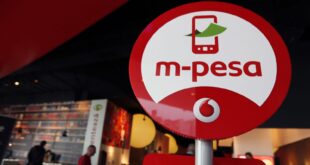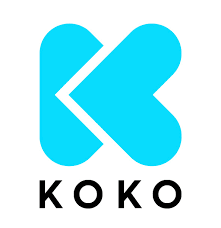A kiosk is an informal convenience store selling everyday household items. Known locally by their vernacular names e.g. Duka in Kenya, Spaza in South Africa, Kantemba in Zambia. kiosk-type retail outlets are the cornerstone of African retail, accounting for over 60% of all retail trade flows. Despite their importance, kiosk-type retail outlets face significant challenges, including high cost of stock and unreliable delivery. Our digital ordering and delivery platform – Kyosk, ensures that these retail outlets get access to stock at competitive prices and have them delivered directly to them. FMCGs find the traditional distribution chain to be inadequate as well, making it expensive for them to serve kiosk-type retail outlets, leading to high incidences of product stock-outs and lost sales opportunities. By providing FMCGs with good data visibility, we solve this major problem of theirs.
FAQs: “kyosk digital services salary, kyosk digital services contacts, kyosk digital services funding, kyosk digital services jobs, kyosk digital services salary in Nigeria, kyosk digital services location, kyosk head office, kyosk warehouse“
Table of Contents [hide]
Kyosk Digital Services Kenya Programme Advert
- Location: Kenya
- Company: Kyosk Digital Services
- Closing Date : 13 February. 2025
Role Purpose
Evaluate the efficacy of business processes, internal controls and risk management procedures currently in place and make recommendations on how to improve internal controls and governance processes. The position holder will use various tools to diagnose and highlight inefficiencies in the SOPs, policies and day to day transactions of the company.
He/she will conduct and direct audits and ongoing reviews of organization controls, operating procedures and oversee compliance with policies and regulations to review and appraise the soundness, effectiveness and proper application of all internal controls and compliance procedures.
Key Responsibilities:
- Internal controls framework: Lead the development and implementation of the internal controls & risk management framework and policy. Continuously review and monitor existing systems to improve their effectiveness and increase the organization’s process maturity levels. Develop operational capabilities to ensure the company can survive adverse effects; lead diagnosis and highlight inefficiencies, fraud and revenue leakage.
- Risk Management:Test the controls set by the organization’s management (for vulnerabilities) and give recommendations on how to mitigate against risks. Participate in end-user testing of applications, systems and dashboards pointing out any inconsistencies or variations from the business requirements. Develop key risk indicators for the business; advise management on enterprise risk; continually identify new and emerging risks facing the company and maintain an up-to-date risk profile. Quantify the probability & severity of the current and emerging risks.
- Operational Efficiency:Conduct regular reviews of the internal controls system to ensure that necessary modifications and improvements are identified and made on time. In partnership with Line Managers develop appropriate robust mitigation actions on gaps identified. Align the ERP to business processes by advising the technology department from a control and process optimization standpoint.
- Internal Audit: Evaluate the application of internal operational guidelines/manuals, identify deviations and recommend appropriate changes whenever necessary. Develop and maintain the internal audit procedures to ensure that best practice is taken into account and that the audits address specific areas of Internal controls & risk management.
- Compliance:Ensure that Line Managers and key staff in control functions are well aware of the company’s Standard Operating Procedures (SOPs) and processes and drive adherence to the SOPs.
- Reporting:Compile and discuss reports detailing findings, implications and recommendations for system improvements. Prepare comprehensive regular and special reports to the leadership team in the business, highlighting identified gaps. Deliver relevant material information to all relevant stakeholders. Expand data sources & collection to populate control and process optimization reports.
- Training:Oversee the organization of regular training and awareness for the staff on the Internal control process to develop an understanding of the same. Document and report material changes affecting the company’s internal control system to help ensure that the framework is reviewed, maintained and improved appropriately.
Minimum Qualifications & Desired Skills
- A bachelor’s degree in Business or related field;
- An MBA is an added advantage;
- At least 5 – 6 years in internal controls and risk management;
- Knowledge and appreciation of internal controls, finance or risk management;
- Adept in process management;
- Proven understanding and application of internal controls management frameworks;
- Proficiency is any statistical software will be an added advantage;
- Critical understanding in the establishment and operation of internal control mechanisms;
- Proven track record of working with cross-functional teams;
- Ability to make presentations and lead workshops with ease;
- Ability to articulate complex ideas in an understandable manner.
- Experience working in a high fraud prone environment and building controls around fraud
Competencies & Skills
- Strong Financial Acumen;
- Strategic Orientation;
- Business Acumen;
- Detail Orientation;
- Analytical Thinking;
- Stakeholder Management;
- Investigative mindset;
- Output oriented;
- Tech Savvy.


